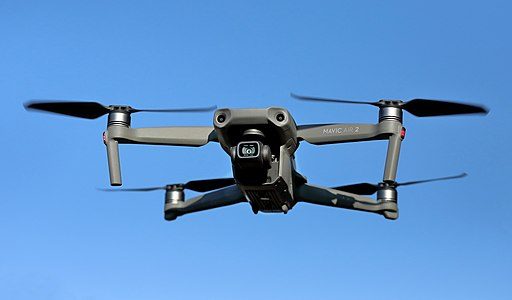Chinese drone maker says that a rushed evaluation may lead to unfair outcomes
DJI, the world’s largest commercial drone manufacturer, has expressed strong concerns about a recent request from U.S. lawmakers calling for an accelerated national security review of Chinese-manufactured drones. In a blog post titled “Don’t Ground Innovation: The Real-World Cost of Banning DJI in the U.S.”, the company argues that the security review process is being short-circuited and warns that such a move risks undermining the intent of the Fiscal Year 2025 National Defense Authorization Act (NDAA).
Lawmakers Push for Accelerated Timeline
On July 10, 2025, Reps. Elise Stefanik (R-NY), John Moolenaar (R-MI), and Rick Crawford (R-AR) submitted a formal request urging the Department of Commerce, Department of Defense, and other federal agencies to initiate a comprehensive review of DJI and other Chinese drone manufacturers. The lawmakers cited concerns that these platforms could present cybersecurity or operational risks in the event of a conflict with China. They called for a preliminary report within 30 days.
This request builds upon language in the NDAA FY25, which requires the federal government to conduct a security review of Chinese-manufactured drone platforms. If the review is not completed within one year, companies like DJI would automatically be placed on the FCC’s Covered List—severely restricting their ability to operate in the U.S. by limiting access to telecommunications infrastructure and spectrum.
DJI’s Response
DJI says a 30-day deadline is unrealistic for the type of comprehensive evaluation that Congress originally intended. “A credible assessment must allow time for evidence to be reviewed, and it must include meaningful opportunities for engagement, clarification, and responsible dialogue. We urge policymakers to uphold the intent of the law by ensuring that this review is transparent, grounded in evidence, and not rushed,” states the company.
DJI maintains that its products are safe and secure, widely used across public safety, agriculture, construction, and infrastructure sectors. The company warns that a rushed review could lead to unintended consequences for the broader U.S. drone ecosystem.
A Market in Tension
Proponents of restricting DJI argue that its market dominance—estimated to be over 70% in the U.S.—poses national security risks. These concerns have already led to a patchwork of state and federal bans on the use of DJI drones in government operations.
On the other hand, many users say that U.S.-manufactured alternatives are not yet able to match DJI’s combination of features, performance, and price. DJI drones are widely used in construction, energy, agriculture, and emergency response.
This tension has led to a Catch-22 in the U.S. drone ecosystem. Domestic manufacturers argue that DJI’s dominance comes from unfair pricing and that banning DJI would create enough demand to drive innovation and lower prices in the U.S. drone sector. But until that market shift occurs, many users—particularly in public safety and small business sectors—worry they will be left without viable tools.
Customs Delays and Supply Uncertainty
The current uncertainty is already affecting the availability of DJI products in the United States. As previously reported by DRONELIFE, drone importers have faced delays due to increased scrutiny at U.S. Customs, with some shipments held up for weeks. While not officially tied to the NDAA provision, these delays add to the concerns of drone operators who rely on DJI systems for their operations.
What’s Next?
As the review process unfolds, the future of DJI in the U.S. market remains uncertain. If the company is placed on the FCC’s Covered List, public safety agencies, small businesses, and infrastructure firms could face significant operational disruptions. Meanwhile, domestic drone manufacturers continue to advocate for policy measures that could give them a stronger foothold in the market.
The outcome of this debate will shape the U.S. drone industry for years to come—balancing concerns over national security with the practical demands of a growing technology sector.


